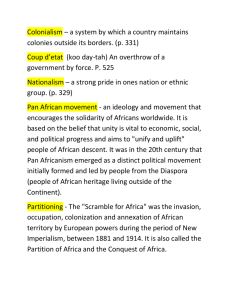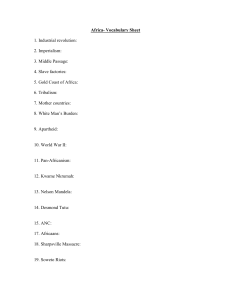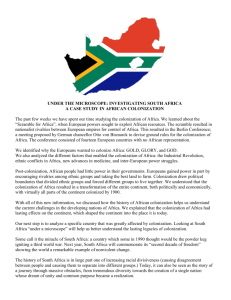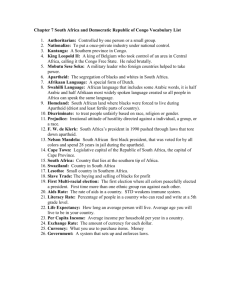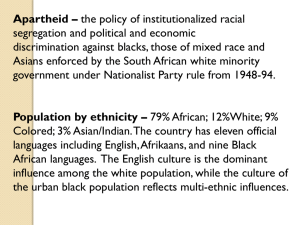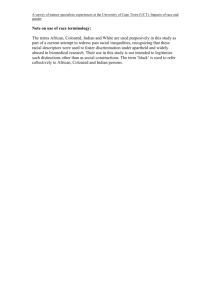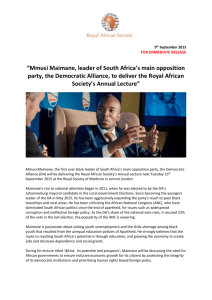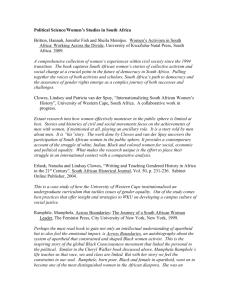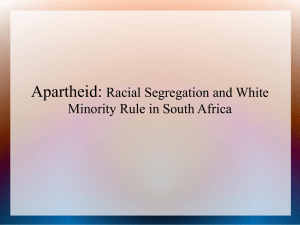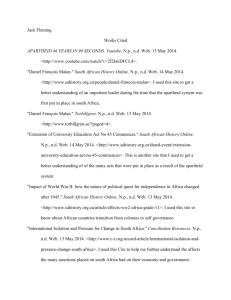Comparing African Political Systems
advertisement
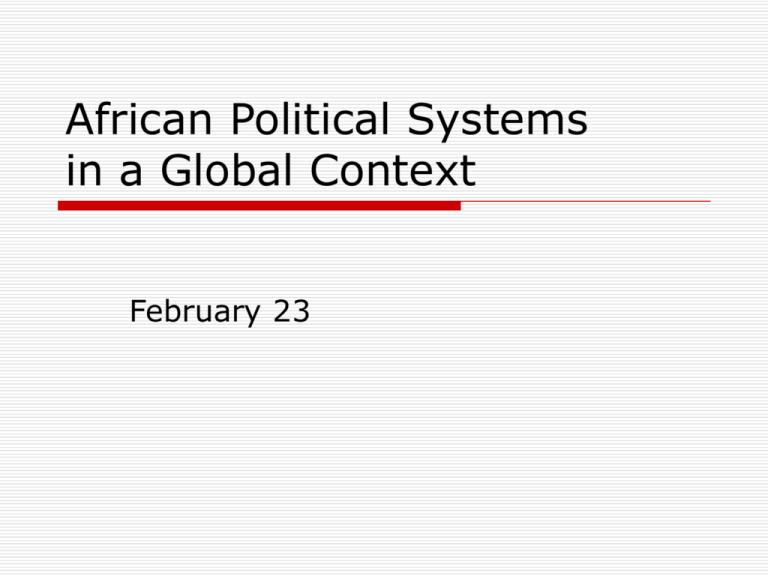
African Political Systems in a Global Context February 23 Atlantic Slave Trade and the Triangular Trade From the mid-15th century to the late 19th century. Manufactured and trade goods (cloth, metal goods, guns) from Europe to Africa. Slaves from Africa to the Americas. Produce from the slavelabour plantations (cotton, sugar, tobacco, molasses, rum) to Europe. Scramble for Africa Before 1880, European colonization of Africa was quite limited (though South Africa was one exception). At the Berlin Conference of 1884-85, the European powers agreed to some ground rules for to colonization and partition of Africa. By 1914, the entire continent of Africa was partitioned and colonized by Europeans, except for Ethiopia and Liberia. Independence Decolonization took place rapidly for much of the continent. Ghana, 1957 Thirty-two independent African countries emerged in the decade after 1957. Chris Allen, “Understanding African Politics” Decolonization and Clientelist Politics Clientelist Crisis Crisis ‘Resolved’: Centralized-Bureaucratic Politics The Centralized-Bureaucratic State Challenged: Democratic Renewal Crisis Unresolved: Spoils Politics Post-Spoils Reconstruction: Populist Revolt Terminal Spoils: State Collapse and Endemic Violence South Africa: Colonization Dutch colonization, 1650s British annexation, 1806 Discovery of diamonds in 1871 and gold in 1886 Anglo-Boer War, 1899-1902 Act of Union, 1910 created a self-governing Dominion within the British Empire. South Africa: Makings of Apartheid Legal foundation of racial discrimination and segregation: Mines and Work Act, 1911 Land Act, 1913 Native Urban Areas Act, 1923 National Party elected and Apartheid introduced, 1948 The Apartheid Regime The Population Registration Act, 1950 classified every citizen into one of four racial categories: African, coloured, Indian or white. Strict segregation of public facilities and residence through homelands, townships Travel controlled through pass laws and influx controls An extremely segmented labour market, with huge wage gaps and opportunities limited and tightly controlled for Africans Sharpeville massacre, 1960 Banning of African National Congress and Pan-Africanist Congress, 1960 Nelson Mandela imprisoned 1962 (released in 1990) Soweto uprising, 1976 Next Week The struggle against apartheid The release from prison of Nelson Mandela, 1990 The transition to democracy and the election of the African National Congress, 1994 Assessing post-apartheid South Africa
